A Time to Heal
Posted on July 13, 2011
ABIDJAN, IVORY COAST — The air is filled with a nauseating, thick, black smoke. Three months ago the smoke came from gunpowder, vehicles set ablaze and horrific “necklacings” — modern-day lynchings that involve placing a tire filled with gasoline around a victim, setting it on fire and letting him or her burn alive.
Today the plumes of smoke are from dozens of dilapidated 16-passenger vans known as “gbakas,” each filled to capacity and speeding up and down the asphalt littered with pot holes.
 If you were to arrive in Abidjan today, you would hardly notice you were standing on a recent battlefield. The streets are once again bustling with activity.
If you were to arrive in Abidjan today, you would hardly notice you were standing on a recent battlefield. The streets are once again bustling with activity.
Street vendors mob vehicles stopped at red lights and press their wares against the windows. City workers in orange hazard vests busily sweep trash out of the roads with straw brooms. Bus stations are crammed with travelers bringing merchandise both into and out of the city.
Earlier in the year, commerce came to a standstill and the streets were empty as people hid in their homes to escape the violence. A noon curfew was imposed across the city, and even then, only those most desperate for food and water came out in the mornings.
The battle for Abidjan lasted for months between fighters supporting last November’s presidential election winner, Alassane Ouattara, and government troops backing former president Laurent Gbagbo.
When Gbagbo refused to step down, bloody urban warfare spread across Abidjan’s neighborhoods, taking the lives of at least 3,000 people. The fighting culminated with U.N. intervention on April 11, 2011, when the presidential palace was bombarded and Gbagbo finally surrendered.
The months leading up to that fateful day were incredibly difficult for Abidjan’s residents — no matter which (if any) political candidate they supported. The city’s water supply was shut off and food prices tripled as a result of the siege.
Edith Vilquin,* a resident who works as a house maid, spent all her life’s savings to feed her family during the lockdown. “If my children had gone out in the streets they would have been shot. I’m an old lady, so the militants left me alone,” she recounts.
She raises her hands in the air, high above her head, and says: “This is how I walked. For a month, this is how we all walked.”
Like Vilquin, most residents in neighborhoods overrun with soldiers fled to areas that weren’t seeing as much direct violence.
A well-established Baptist church in one such neighborhood opened its doors to refugees from churches across town.
 “At one point we had over 60 people here at the church,” says Joseph Armoo,* the church’s pastor. “They slept in our Sunday School rooms and we shared our meals.”
“At one point we had over 60 people here at the church,” says Joseph Armoo,* the church’s pastor. “They slept in our Sunday School rooms and we shared our meals.”
The refugees included other Baptist pastors and their families.
“I can’t stress how much of a blessing our brothers and sisters in Christ were,” recounts Baptist pastor Kouame Pacome.*
His neighborhood saw some of the worst fighting during the crisis. His church facility closed after looters took all its furniture, musical instruments and even lighting fixtures.
Pacome and his wife hid in their home for weeks before finally fleeing to Armoo’s church. During the month he spent at his newfound refuge he never went without food.
“I had three meals a day, every day. It was amazing,” Pacome recalls. Although his church members were displaced all over the city, they went to great lengths to not only telephone and check up on him, but also to send him money and supplies.
Armoo credits God with providing for the people on his church compound. “Every day, someone would show up to give us help. One day a Christian woman showed up at the gate with a bunch of mattresses for us.”
On other days, believers would come by and give them money to buy food. “It was by the grace of God that we survived this!” he exclaims.
The Christian refugees came from neighborhoods and ethnic groups known to support opposing sides of the conflict. Yet they shared their meals and lodging together.
“Your blood family is a gift from God. It’s good, but it has its limits. There is death, there is old age, there is separation … but your family in Christ is eternal,” shares Pacome.
As the new government calls for reconciliation among the population, believers see this as an opportunity to reach out.
“The church’s message has always been one of reconciliation. A person who gives himself to the Lord becomes a new person.” says Armoo.
“After all,” he continues, “we are supposed to be different. The time is now to show the difference between the Christian and the non-Christian.”
At times during the conflict, and even after the U.N. intervention, the fighting seemed on the verge of becoming religious. The U.N. Operation in Ivory Coast (UNOCI) reports that on April 17, heavily armed troops raided the premises of a Jesuit institution. One of the soldiers allegedly stated they were attacking under the perception that the Catholic Church supported their opposition’s forces and was being used to hide weapons. UNOCI notes that not a single weapon was found.
This prompted Muslim and Christian leaders to meet at Armoo’s church and discuss how to ease such tensions and dispel harmful rumors.
 Many neighborhoods selected both religious and ethnic leaders in their communities to form “reconciliation committees.” François Gico,* another Baptist pastor who sought refuge with Armoo, is a part of one of these committees.
Many neighborhoods selected both religious and ethnic leaders in their communities to form “reconciliation committees.” François Gico,* another Baptist pastor who sought refuge with Armoo, is a part of one of these committees.
“I’m happy, even proud, to be a part of the community leadership with Muslim imams,” says Gico. “We have to work together to help keep the peace.”
Both Gico and Pacome have since returned to their respective neighborhoods and their churches are holding services once again. Church attendance is returning to pre-conflict numbers as members slowly return to the city.
“It’s by the grace of God that we are alive,” says Gico, who had a brush with death when a stray bullet came through the church office roof and landed beside him.
It is with that realization that Gico and the other pastors have been emphasizing the importance of evangelism to their congregations. “Yes, we are hurting,” says Gico, “but in Jesus, people can still have hope.”
“After all,” says Pacome as he holds up his Bible, “if God allowed us to live through this ordeal, then He has a mission for us.”
*Name changed
William Haun is a long-term volunteer who works alongside IMB’s global communication team.

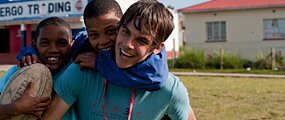
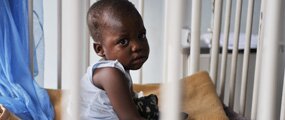
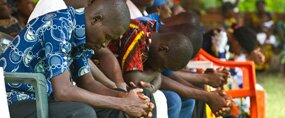
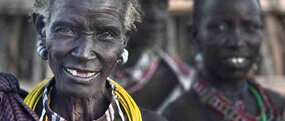
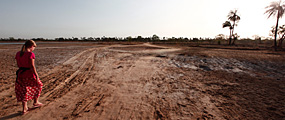
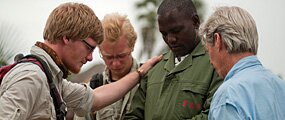

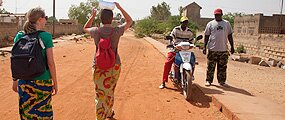
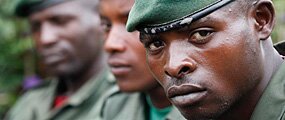
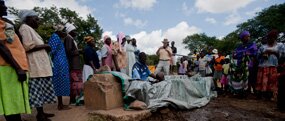
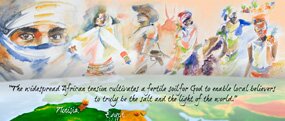

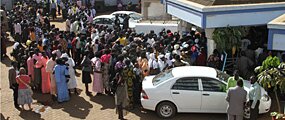



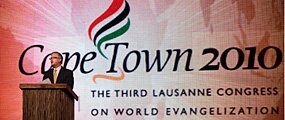
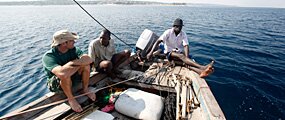
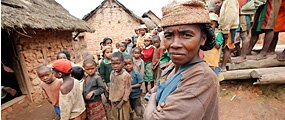

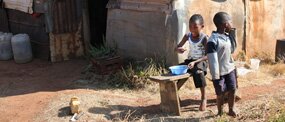
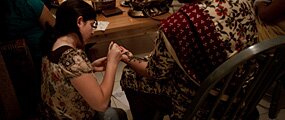
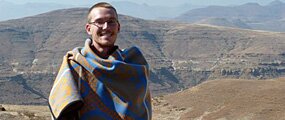



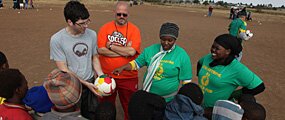
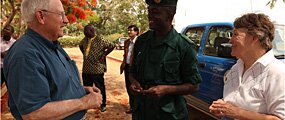
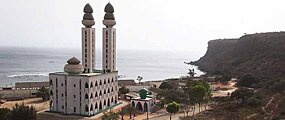
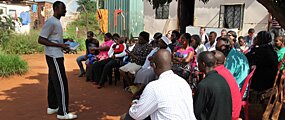
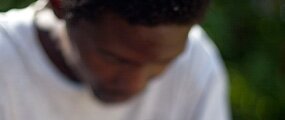


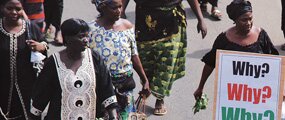
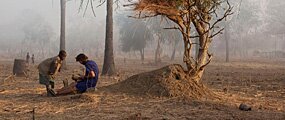
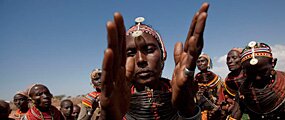
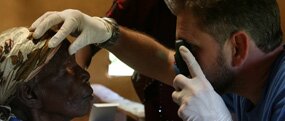
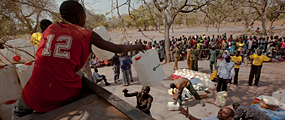
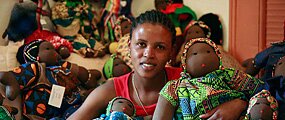
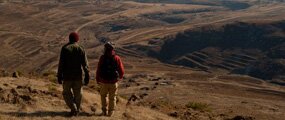
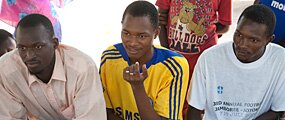
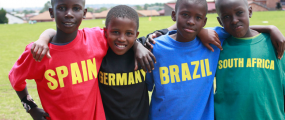
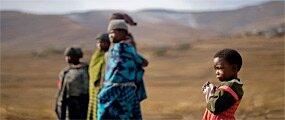
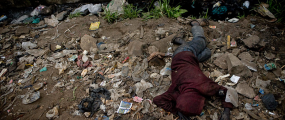
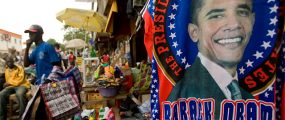
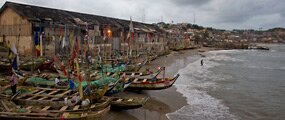

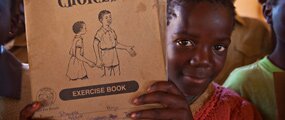





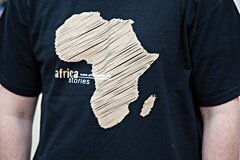


William please continue to share with the American people how God is working in spite of the devil and his forces. Our God is all powerful, all knowing and will bless your efforts. Love and prayers in Christ. Sylvia Lail
William, very encouraging! PTL for faithful believers who modeled the example of our Savior & Lord.
Thanks for reading the story and yes! Praise the Lord for faithful believers!
I can only imagine the stories you heard that you didn’t get to write. Thanks for these well-written pieces, William. You are an artist in all genres and I love that you’re using your gifts to tell the stories.
Another great story of God’s faithfulness to His people!